Tyrosine Kinase
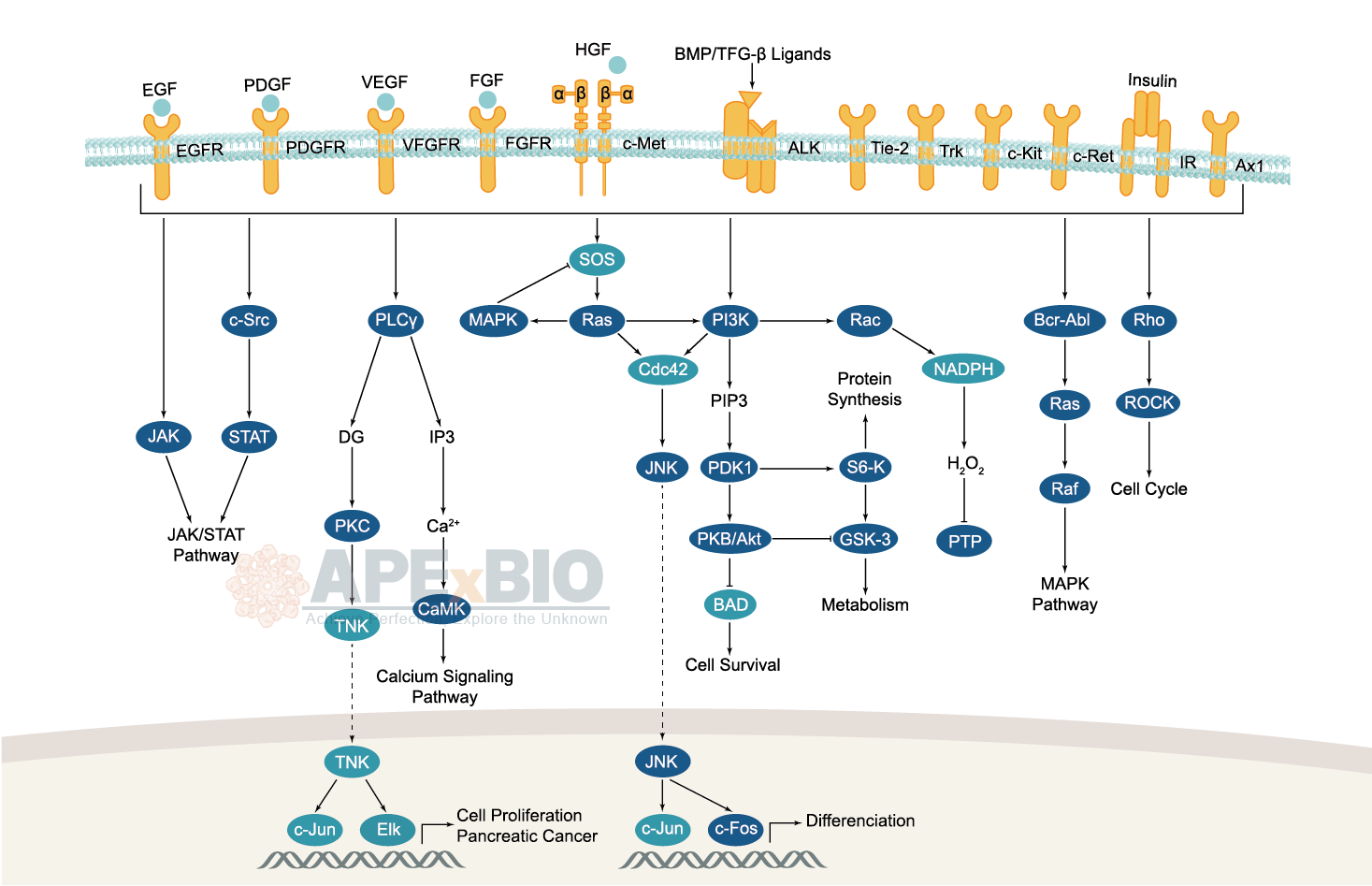
Receptor tyrosine kinases bind to extracellular ligands/growth factors, which promotes receptor dimerization and autophosphorylation of receptor tyrosine residues. This triggers a cascade of downstream events through phosphorylation of intracellular proteins that ultimately transduce the extracellular signal to the nucleus, causing changes in gene expression. Receptor tyrosine kinases include EGFR/ErbB, PDGFR, VEGFR, FGFR and MET subfamilies etc. Dysfunctions in tyrosine phosphorylation are linked to oncogenic transformation. In additions, various adaptor and effector proteins couple to carboxy-terminal of an active kinase. For instance, binding of the GRB2 adaptor protein activates EGFR and MAPK/ERK signaling.
Non-receptor tyrosine kinases involve many well-defined proteins (e.g. the Src family kinases, c-Abl, and Jak kinases) and other kinases which regulates cell growth and differentiation. For example, Src family kinases are curial for activating and inhibitory pathways in the innate immune response.
-
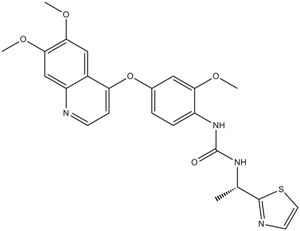 A3527 Ki20227Target: c-Fms tyrosine kinaseSummary: C-Fms tyrosine kinase inhibitor
A3527 Ki20227Target: c-Fms tyrosine kinaseSummary: C-Fms tyrosine kinase inhibitor -
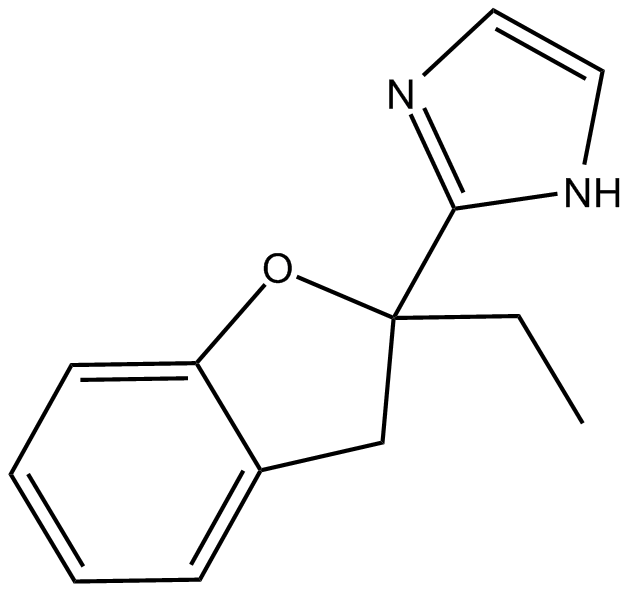 A3534 KU14RSummary: I(3)-R antagonist
A3534 KU14RSummary: I(3)-R antagonist -
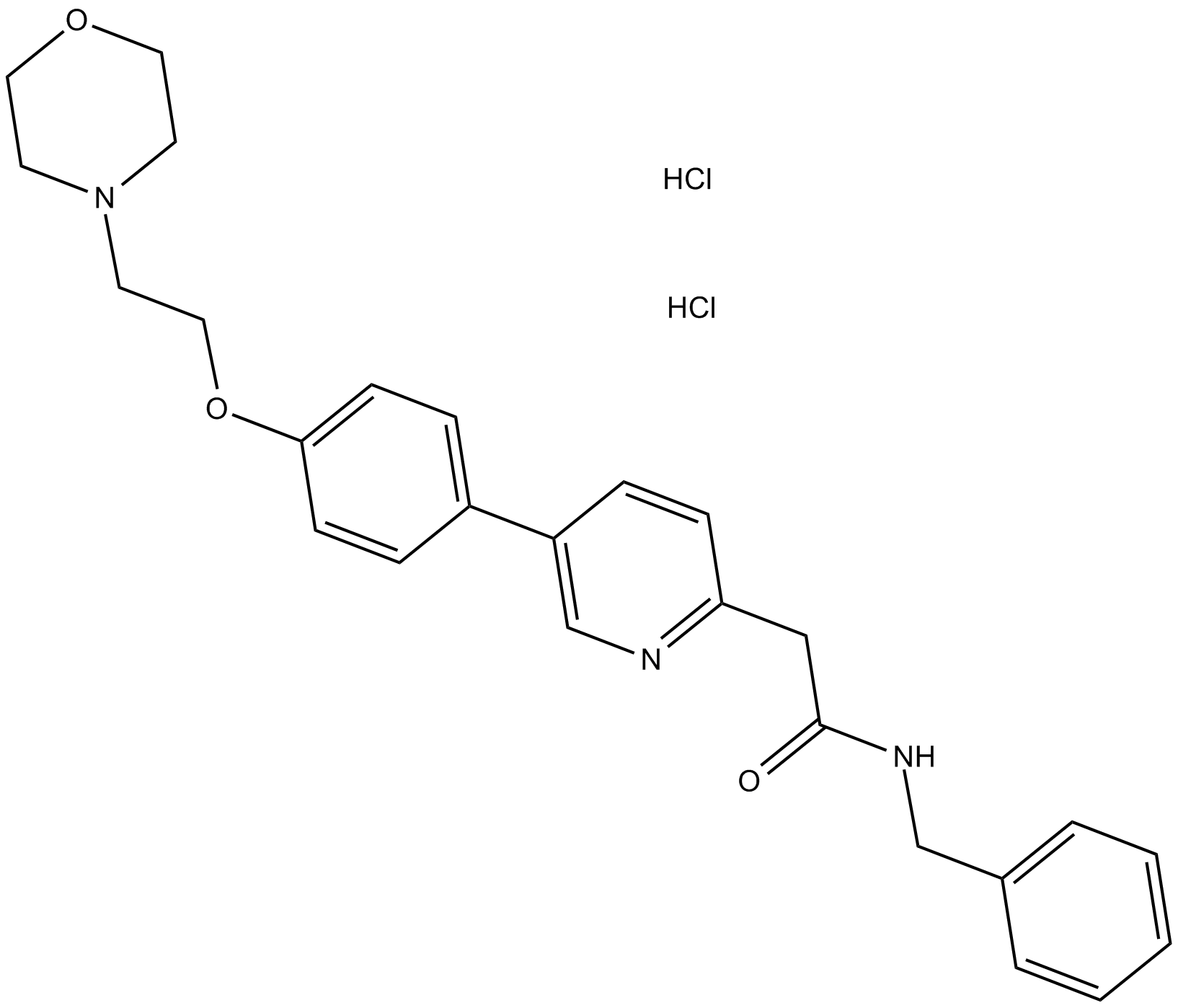 A3535 KX2-391 dihydrochlorideTarget: SrcSummary: Src kinase inhibitor
A3535 KX2-391 dihydrochlorideTarget: SrcSummary: Src kinase inhibitor -
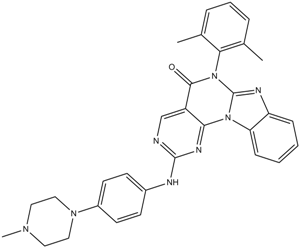 A3539 Lck InhibitorSummary: Lck inhibitor
A3539 Lck InhibitorSummary: Lck inhibitor -
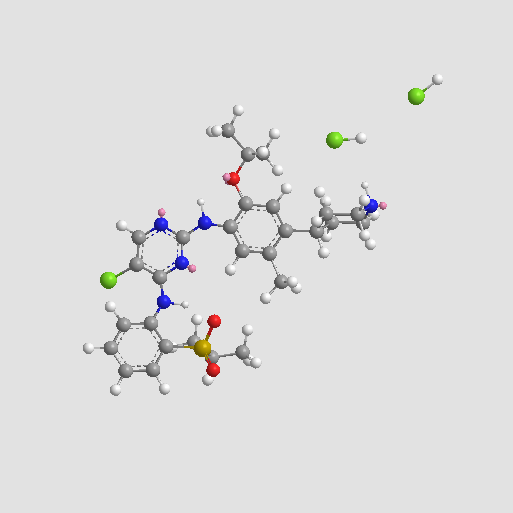 A3544 LDK378 dihydrochlorideSummary: ALK inhibitor
A3544 LDK378 dihydrochlorideSummary: ALK inhibitor -
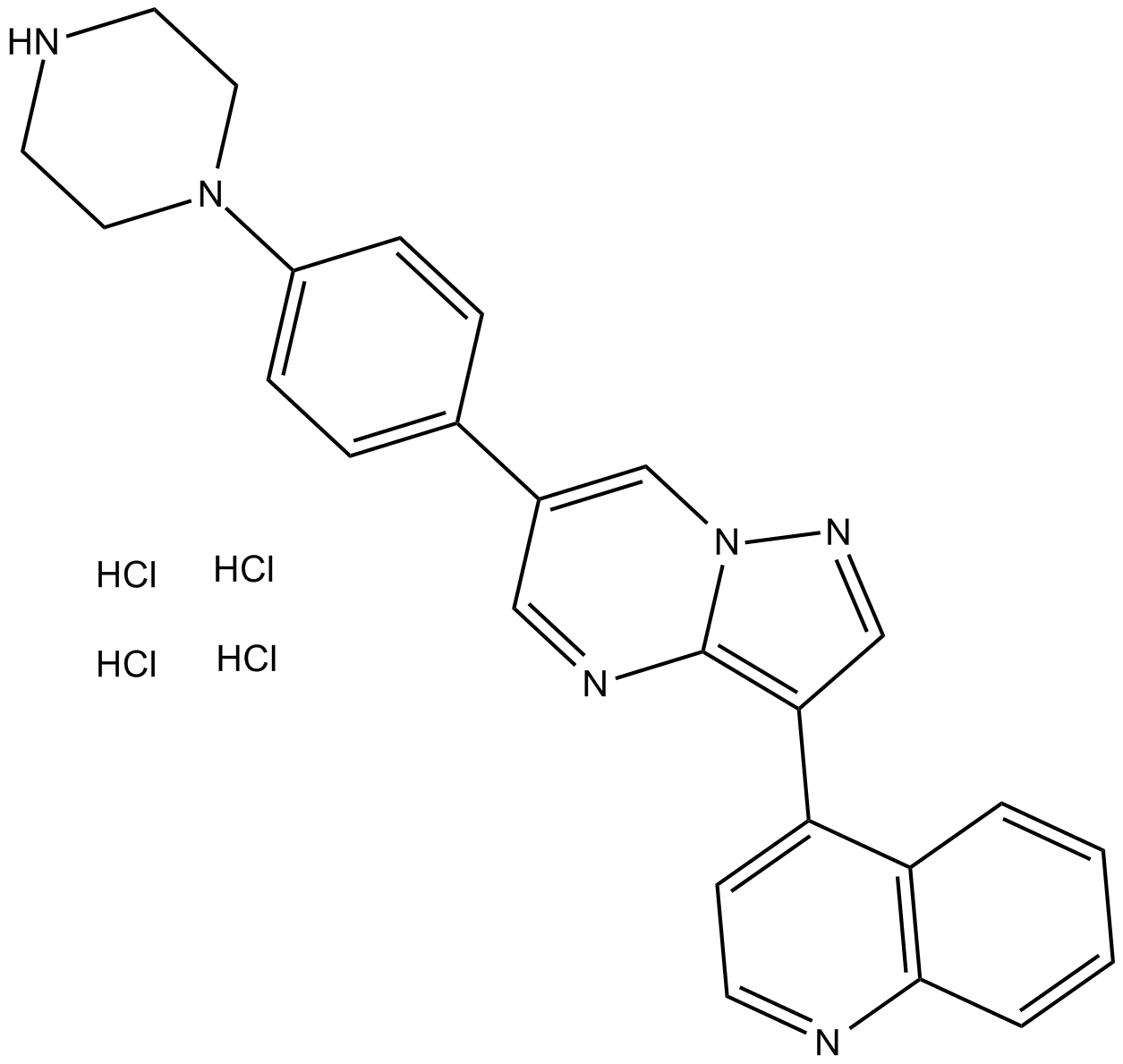 A3545 LDN193189 Hydrochloride1 CitationSummary: ALK inhibitor,potent and selective
A3545 LDN193189 Hydrochloride1 CitationSummary: ALK inhibitor,potent and selective -
 A3558 LRRK2-IN-11 CitationTarget: LRRK2|DCLK2Summary: LRRK2 inhibitor,cell-permeable and ATP competitive
A3558 LRRK2-IN-11 CitationTarget: LRRK2|DCLK2Summary: LRRK2 inhibitor,cell-permeable and ATP competitive -
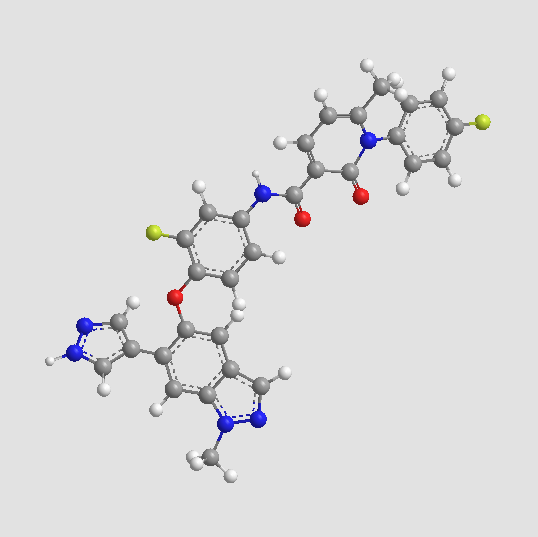 A3573 LY2801653Target: METSummary: MET inhibitor
A3573 LY2801653Target: METSummary: MET inhibitor -
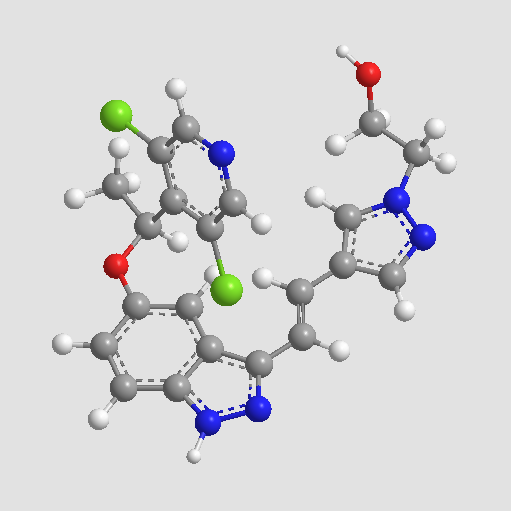 A3576 LY2874455Summary: FGF/FGFR Inhibitor
A3576 LY2874455Summary: FGF/FGFR Inhibitor -
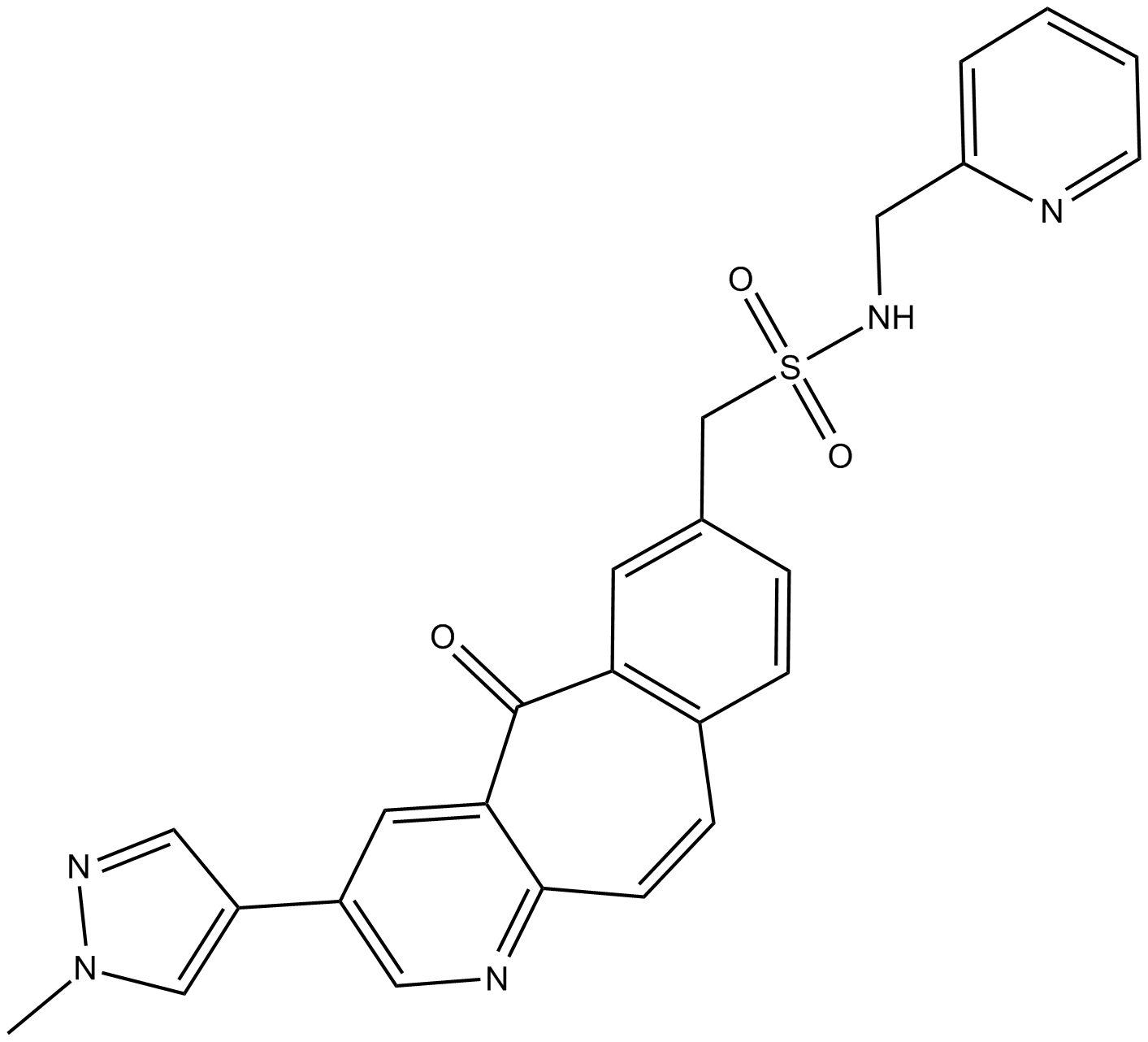 A3624 MK-8033Summary: C-MET inhibitor
A3624 MK-8033Summary: C-MET inhibitor

